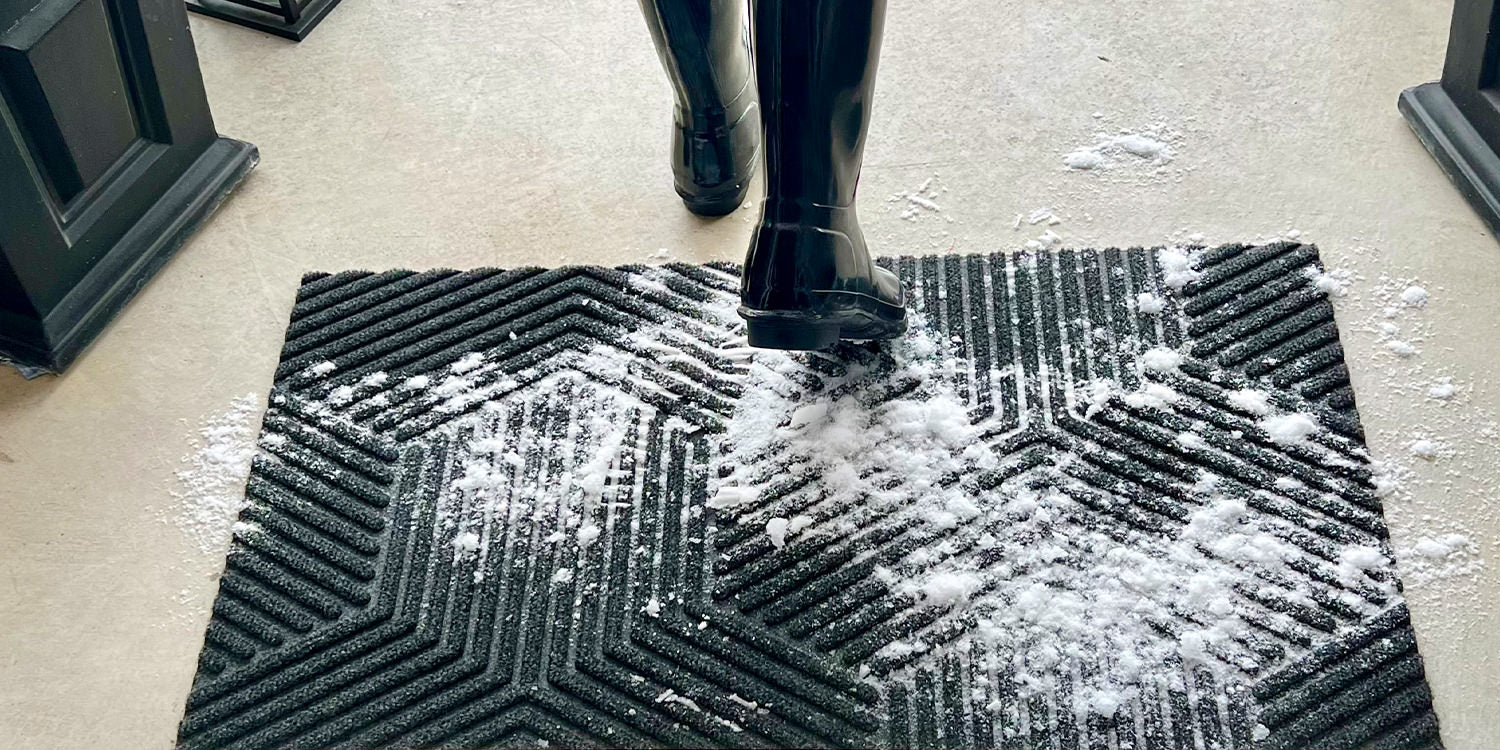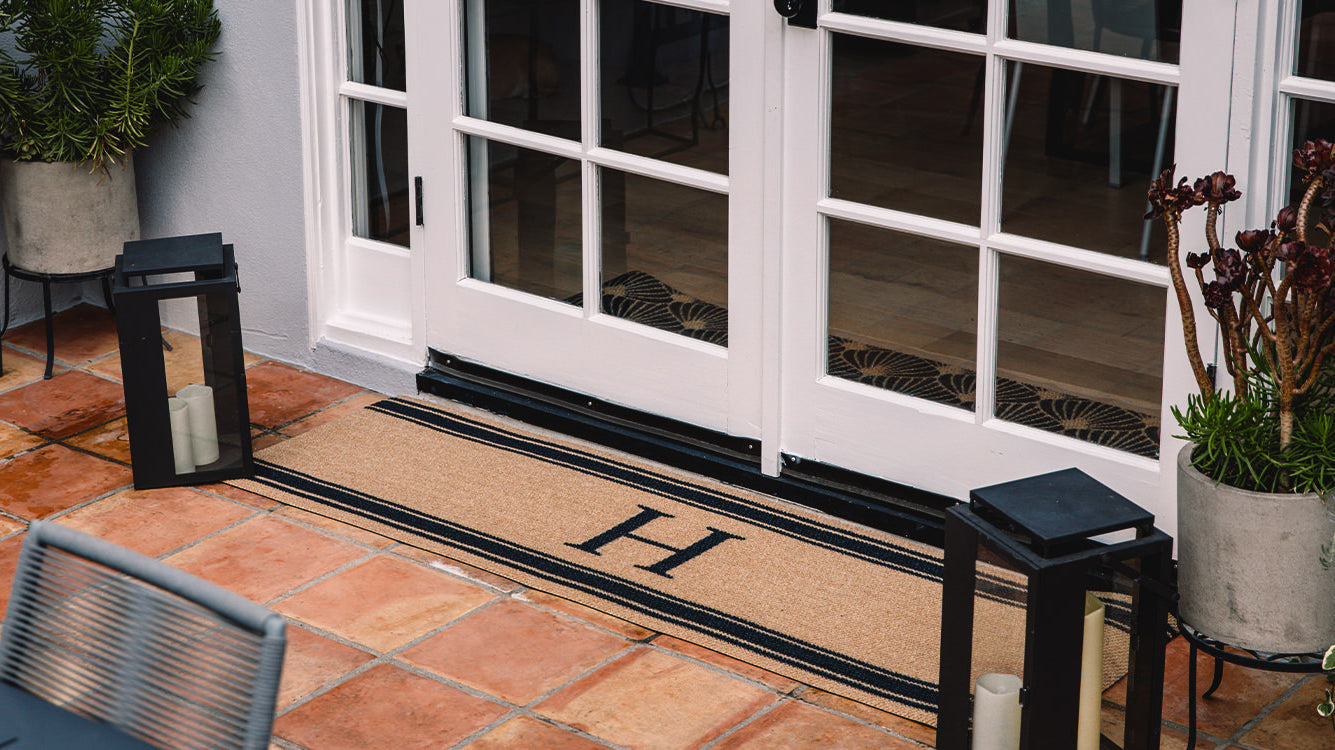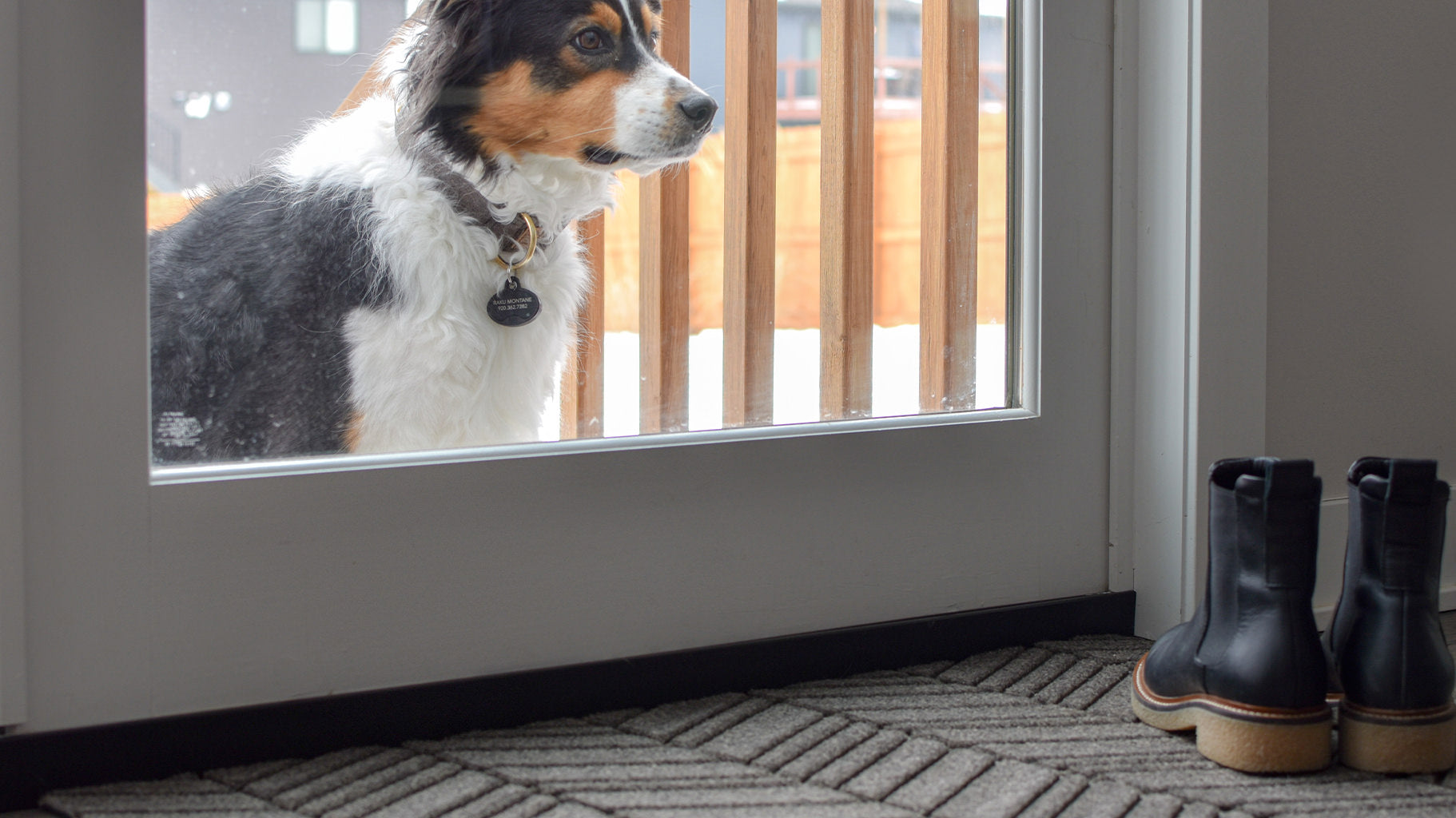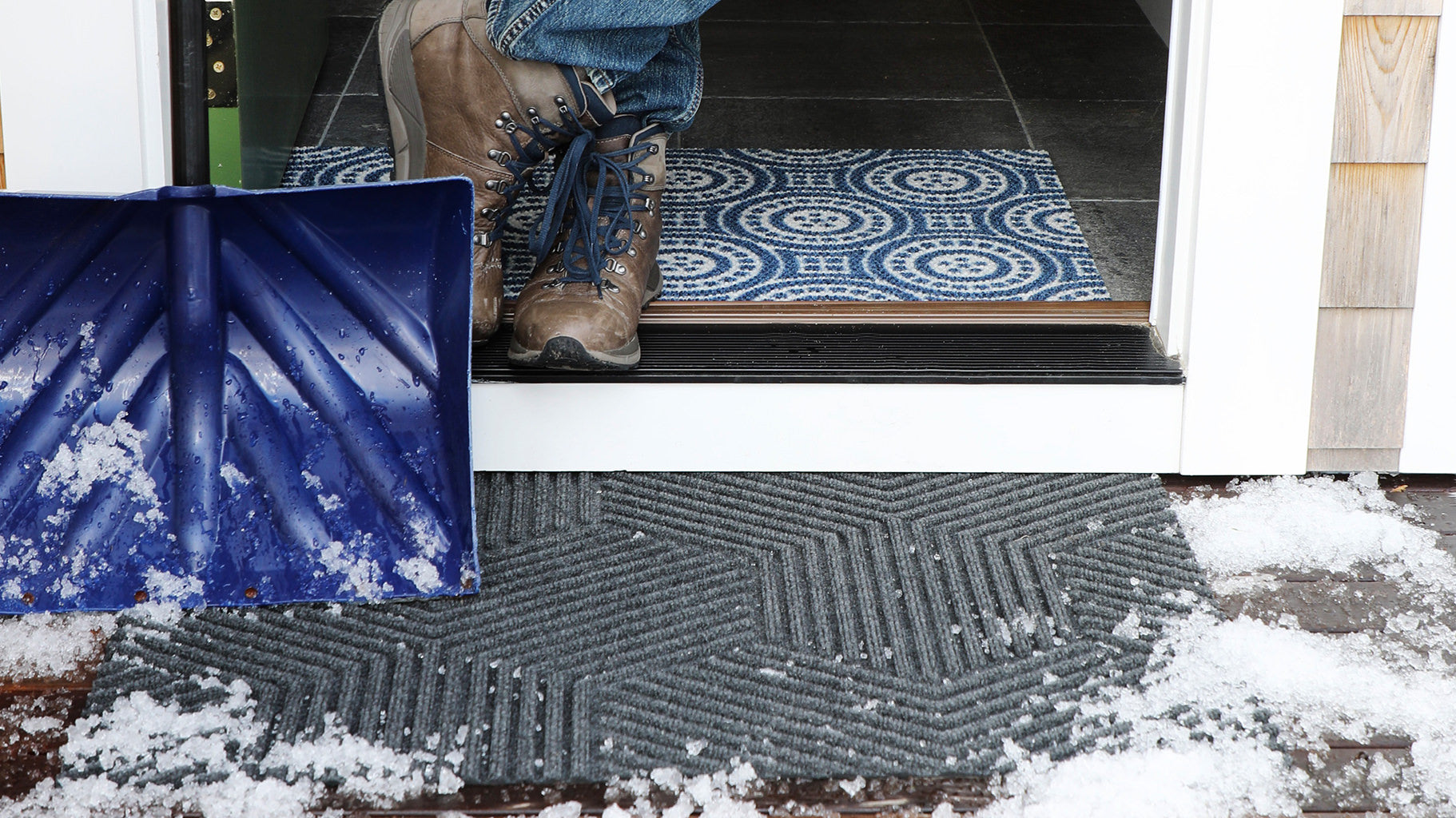Hey there friends, and welcome back to The Neighborhood! Today we’re going to continue our focus on outdoor door mats and the topic of what are the best materials for an outside doormat. If you’re interested, you can read a more in-depth discussion here: Outdoor Doormats: A Guide to All-Weather Awesomeness.
When it comes to outdoor doormats, there's more than meets the eye. Beyond the welcoming aesthetics, the material of your doormat plays a crucial role in its performance. Let's take a stroll through the garden of options and find out which material stands tall as the champion for all-weather durability.
It’s all about the Backing
It may not be as pretty as the surface, but the foundation of a quality outdoor doormat starts with the backing and what material is used. Here’s a list of common options to consider.
-
Heavy-Duty Rubber

Rubber is the ideal backing material choice for outdoor door mats due to its durability and the superior traction it provides in harsh weather conditions including extreme heat and cold. Quality rubber will lay flat, resist curling, and will not rot. Rubber-backed mats are typically more expensive than vinyl or PVC due to its longevity and quality.
-
Vinyl
Vinyl, when used in matting is an inexpensive plastic alternative to rubber. While a popular and cost-effective material for doormats, it does not perform as well as rubber. Vinyl tends to have a high chemical resistance and is often used in specialized commercial applications. The process to manufacture vinyl is not ideal for those concerned with environmental impact.
-
PVC
PVC (Polyvinyl Chloride) is a cheaper form of vinyl is a popular choice for low-cost imported doormats. It will hold up in controlled environments and are water-resistant, but do not perform well in extreme conditions, especially cold. Because PVC is a type of vinyl, the manufacturing process is not ideal for those concerned with environmental impact and is incredibly difficult to recycle.
What’s on the Surface?
Of course we all want a good-looking outdoor doormat, but the surface of a doormat is much more than a pretty face! What’s on the surface determines whether it’s a better doormat for scraping, cold-weather, wet areas, etc. Consider these materials when trying to decide on your next front door doormat.
- Recycled PET
Recycled PET is a versatile and weather-resistant closed-cell fiber, ideal for doormats and outdoor settings due to their ability to effectively wipe and scrape. Doormats made with PET perform well in colder climates. Closed-cell fibers dissipate moisture, which is a fancy way of saying it traps and spreads water between fibers resulting in a much faster drying time. PET fibers are made from recycled plastics and have a very long life cycle.
- Polypropylene
Polypropylene is another versatile closed-cell fiber that is commonly used in outdoor applications. Similar to PET, polypropylene does well in adverse weather conditions and has a long lifespan. It is more rigid than PVC and PET. Polypropylene works best for wiper and scraper mats as it dissipates water like PET fibers.
- Coir

Coir, also referred to as coco, is derived from coconut fibers and is often paired with vinyl for a cost-effective matting solution. Coir mats are constructed with a coarse texture, ideal for scraping off dirt and moisture from footwear. Coco mats absorb water and take longer to dry out than PET or polypropylene. Known as an eco-friendly option, imported coir mats will also shed its fibers resulting in a shorter life cycle because of their loose construction.
- Nylon
Nylon is still commonly found in floor mats due to its resilient properties. Nylon is a hygroscopic fiber which means it will absorb and hold water. It will not dry as fast as PET or polypropylene, but it will dry faster than coir. Nylon has a shorter lifespan than PET but will outlast coir fiber.
Want to know even more? Check out the Complete Guide to Finding Your Ideal Doormat...
A Little Info to Let You Know...
We like to give you, the reader, a little info as to who we are. At Matterly, our history is deeply rooted in matting and floor coverings; like 6 decades deep. From where we sit as we type out this article, a quick walk through one set of doors leads out to a manufacturing plant floor where thousands of floor mats are made every day. We’re making rubber, we’re extruding fibers, we’re printing on textiles, and it’s all being done right here in America.







